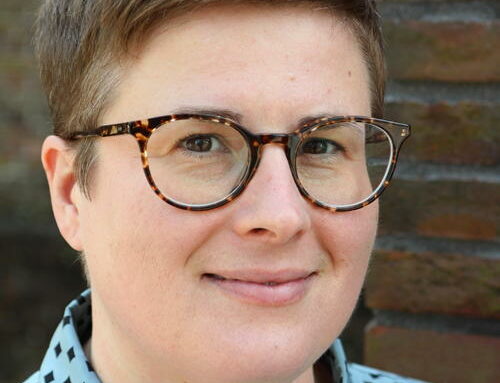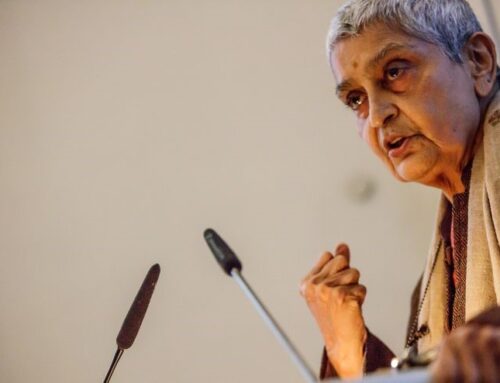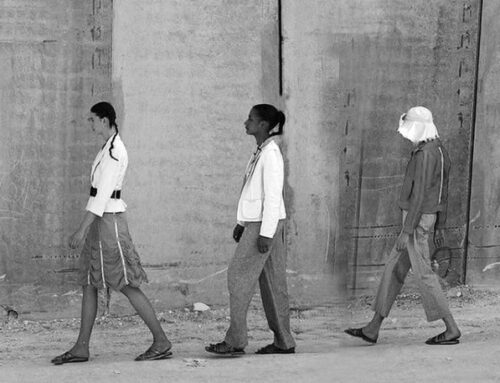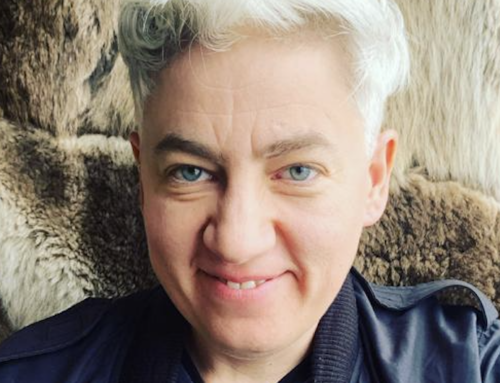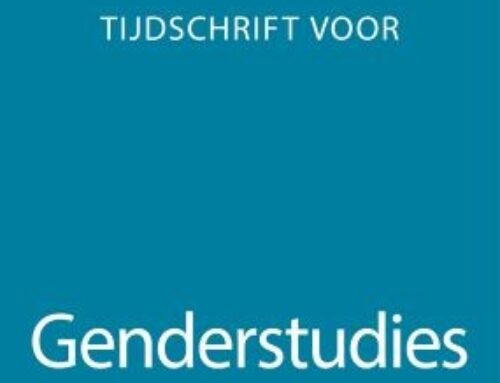*Trans* Archives, Arts, Affects
Dates: 21, 28, February; 6, 13, 20 March 2024
Location: Maastricht University
Instructor: Eliza Steinbock
Contact: e.steinbock@maastrichtuniversity.nl
Credits: 5 ECTS
Registration: via NICA website (opens December 14, 2023).
*for registration, a short motivation of 150-200 words will be required.
This core course is organized by NICA and NOG
“We were there – erasing us is a real act of violence,” claimed scholar Syrus Marcus Ware about the lack of records on transgender community members in the Canadian national queer archive (2017, 174). The message that transgender people “don’t exist,” even within queer archives, has been echoed by institutional archives worldwide (Hayward 2017). As actress-activist Laverne Cox explained in the New York Times, “At the heart of the fight for trans justice is a level of stigma so intense and pervasive that trans folks are often told we don’t exist — that we’re really just the gender we were assigned at birth” (2013). The discriminatory perspective of the archive and of media is a powerful means to enact a cultural “erasure” that amounts to an “epistemocide” of particular knowledge and lives, which has had dire social consequences (Namaste 2000; Lewis 2014; Santos 2014).
Much trans art and cultural production troubles rote practices of historical documentation in the vein of the “archival turn in contemporary art” (Callahan 2022; McLean 2019; Osthoff 2009; Simon 2002; van Alphen 2014). This course will investigate how trans art has the capacity to ask critical questions about archival mechanisms of in/exclusion, while additionally offering alternative sources for understanding transgender social worlds, including strategies of recording, narrating, documenting, cataloging and exhibiting those worlds. Conjoining the paradigms of historical and aesthetic interpretation, the NICA/NOG core course on *Trans* Art, Archives and Affect proposes to analyze the archival and cultural work of transgender worldmaking as symbolic acts that insist “we exist” in the face of symbolic annihilation, and to analyze how they transmit rich information about the “historical sensorium” of this existence (Berlant 2011, 17l; Goodman 1978; Groeneveld 2018, 81; Tuchman 1978).
With a humanities-driven approach, this course invites participants to study the cultural dimension of how social groups struggle against evidence and representation that are untrustworthy due to the omission, trivialization, and condemnation of these communities. In this transgender instantiation of the ‘archival turn’ to question and transform archives of harm, we will set out to specify how, in trans memory cultures, activating the past is a way to establish affective justice for trans people now. Affective justice refers to how a state of relation that has been maintained in the past through acts of symbolic annihilation, in part through archives, is able to be transformed; and by changing these relations, counter-archives break down encrusted negative affect, narrate episodes of joyful recognition, and unmake stigmatizing historical worlds. Hence, this course takes up justice as an ethical and philosophical idea that refers to the application of equity, fairness, and access, applied here to cultural memory practices and representation.
Themes and structure
This interdisciplinary trans studies course will be organized around particular themes:
1. Trans Study (21 February)
2. Annihilation (28 February)
3. Ephemera (20 March)
4. Mediumship (6 March)
5. Abundance (13 March)
Each meeting will involve seminar discussion of the assigned readings, a short lecture by Eliza Steinbock on a particular case study, and an interactive/creative activity for processing the cultural analysis of the case and theories (and/or being joined by a guest scholar). Assigned materials will draw from authors such as: Anjali Arondakar, Cameron Awkward-Rich, Marquis Bey, Nael Bhanji, Elspeth Brown, Jian Neo Chen, Howard Chiang, Jennifer Evans, Jonah M. Garde, Jules Gill-Petersen, Che Gossett, Jin Haritaworn, Eva Hayward, Wigbertson Julian Isenia, Chase Joynt, Greta LaFleur, Hil Malatino, José Esteban Muñoz, Morgan M. Page, Nat Raha, Ruth Ramsden-Karelse, Cole Rizki, C. Riley Snorton, SA Smythe, Eliza Steinbock, and Susan Stryker.
(N.B. Participants who followed the 2023 NOISE summer school offered by NOG on “Queer, Trans, Sexual Archives” will be well-prepared to take part. Recommended preparatory reading is anything from the journal TSQ, as well as the prepared syllabi https://www.radicalhistoryreview.org/abusablepast/trans-studies-syllabus-for-bullshit-times/ http://artjournal.collegeart.org/?p=16500)
Bio
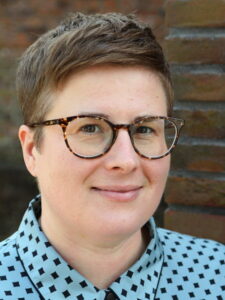 Eliza Steinbock is an associate professor in the department of Literature and Art within the Faculty of Arts and Social Sciences at Maastricht University and also directs the research institute Centre for Gender and Diversity. Driving their interdisciplinary research is the question of how local visual and material cultures can be marshalled to respond to global challenges of inclusion and exclusion mechanisms experienced by marginalised people, foremost identified as queer and trans. This focus has directed their investigation into the politics of cultural production and exhibition in the film, arts, and heritage sectors resulting in 40+ articles and book chapters analyzing the intersecting dimensions of gender, sexuality, race, and ability. They authored the Society for Cinema and Media Studies awarded best first book, Shimmering Images: Trans Cinema, Embodiment, and the Aesthetics of Change (Duke, 2019) and is co-editor of Art and Activism in the Age of Systemic Crisis: Aesthetic Resilience (Routledge, 2020). Their most recent edited volume is the “Europa Issue” of TSQ: Transgender Studies Quarterly (June 2021 with Yv E. Nay). Together with Susan Stryker and Jian Neo Chen, Eliza co-edits the Duke book series ASTERISK: Gender, Trans-, and All That Comes After. They are project leader of “The Critical Visitor: Intersectional Approaches for Rethinking and Retooling Accessibility and Inclusivity in Heritage Spaces” (NWO Smart Culture 2020-2025), and also a principle investigator in “Perverse Collections: Building Europe’s Queer and Trans Archives” (European Joint Programme Initiative – Cultural Heritage 2023-2025). https://www.elizasteinbock.com
Eliza Steinbock is an associate professor in the department of Literature and Art within the Faculty of Arts and Social Sciences at Maastricht University and also directs the research institute Centre for Gender and Diversity. Driving their interdisciplinary research is the question of how local visual and material cultures can be marshalled to respond to global challenges of inclusion and exclusion mechanisms experienced by marginalised people, foremost identified as queer and trans. This focus has directed their investigation into the politics of cultural production and exhibition in the film, arts, and heritage sectors resulting in 40+ articles and book chapters analyzing the intersecting dimensions of gender, sexuality, race, and ability. They authored the Society for Cinema and Media Studies awarded best first book, Shimmering Images: Trans Cinema, Embodiment, and the Aesthetics of Change (Duke, 2019) and is co-editor of Art and Activism in the Age of Systemic Crisis: Aesthetic Resilience (Routledge, 2020). Their most recent edited volume is the “Europa Issue” of TSQ: Transgender Studies Quarterly (June 2021 with Yv E. Nay). Together with Susan Stryker and Jian Neo Chen, Eliza co-edits the Duke book series ASTERISK: Gender, Trans-, and All That Comes After. They are project leader of “The Critical Visitor: Intersectional Approaches for Rethinking and Retooling Accessibility and Inclusivity in Heritage Spaces” (NWO Smart Culture 2020-2025), and also a principle investigator in “Perverse Collections: Building Europe’s Queer and Trans Archives” (European Joint Programme Initiative – Cultural Heritage 2023-2025). https://www.elizasteinbock.com


